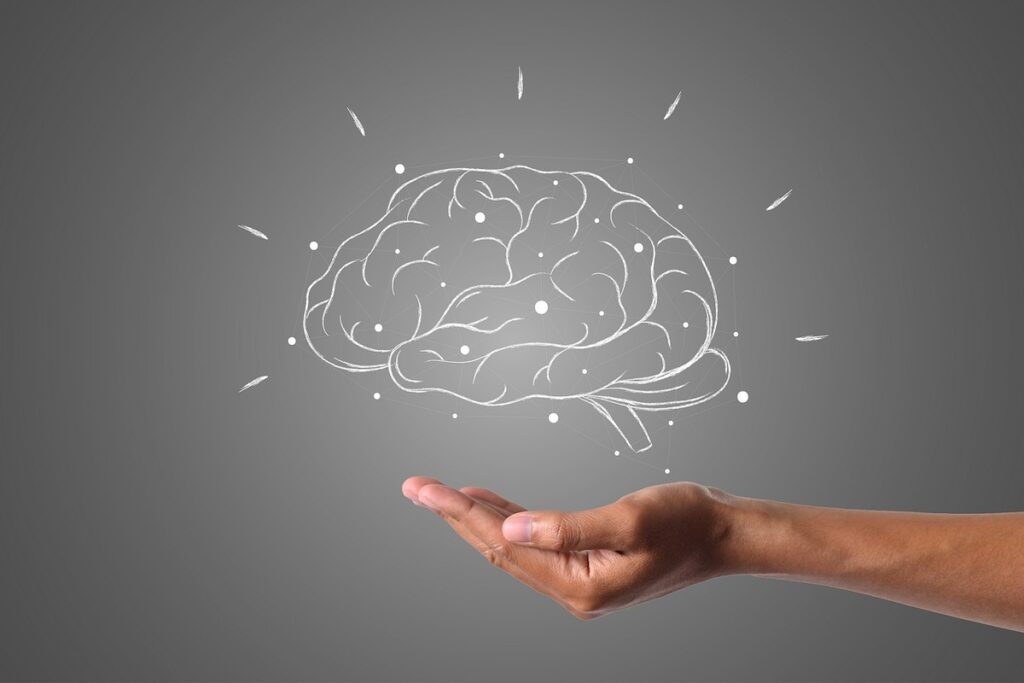How Neuropsychology Can Help Manage Bipolar Disorder?
Bipolar disorder is a complex mental health condition characterized by significant mood fluctuations, ranging from extreme highs (mania) to deep lows (depression). These emotional shifts can severely impact daily life, relationships, and overall well-being. Beyond mood disturbances, individuals with bipolar disorder may experience cognitive difficulties such as impaired memory and executive functioning, which further complicate their ability to manage the disorder. This is where neuropsychology plays a crucial role.
Neuropsychology explores the intricate connection between the brain and behavior, offering insights into the cognitive challenges associated with bipolar disorder. By understanding these cognitive aspects and how they interact with emotional regulation, neuropsychologists can develop tailored treatment plans that enable individuals to manage their symptoms more effectively. This article delves into how neuropsychology can help those with bipolar disorder better navigate their condition and improve their quality of life.

Understanding Bipolar Disorder: The Emotional Extremes
Bipolar disorder manifests through two primary mood states: depression and mania. Each of these extremes presents unique challenges and can have profound effects on an individual’s functioning.
Depression
During depressive episodes, individuals may experience intense feelings of sadness, fatigue, and a lack of motivation. They often lose interest in activities they previously enjoyed and may feel disconnected from their surroundings. Common symptoms of bipolar depression mirror those of major depressive disorder, including lethargy, difficulty concentrating, and feelings of hopelessness. This emotional state can make even the simplest tasks seem overwhelming, often leading to isolation and a decline in overall functioning.
Mania
On the other end of the spectrum, manic episodes are marked by heightened energy, euphoria, and inflated self-confidence. Individuals experiencing mania may engage in impulsive behaviors, make reckless decisions, and neglect basic needs such as sleep and nutrition. While mania can feel exhilarating, it can also lead to harmful consequences, such as financial difficulties, relationship strain, or even legal problems. The impulsivity associated with mania often results in actions that are difficult to reverse, making the aftermath of these episodes particularly challenging.
For those living with bipolar disorder, the frequency and intensity of these episodes vary widely. Some individuals experience more frequent depressive episodes, while others may spend more time in manic states. The unpredictable nature of these mood swings makes it difficult to maintain a stable routine, further emphasizing the need for effective management strategies.

The Cognitive Challenges of Bipolar Disorder
In addition to mood swings, individuals with bipolar disorder often face cognitive impairments that can persist even when mood symptoms are under control. Common cognitive difficulties include problems with memory, attention, decision-making, and problem-solving. These cognitive deficits can affect an individual’s ability to plan, stay organized, and manage day-to-day tasks. This is where neuropsychology becomes invaluable.
At its core, neuropsychology examines the relationship between brain function and behavior. Through comprehensive assessments, neuropsychologists evaluate how different cognitive functions, such as memory and executive functioning, are affected by bipolar disorder. By identifying specific areas of cognitive difficulty, clinicians can develop personalized interventions that target both emotional and cognitive challenges.

The Prefrontal Cortex and Limbic System: Key Brain Regions in Bipolar Disorder
To better understand how neuropsychology can aid in managing bipolar disorder, it’s important to explore the brain regions involved in emotion regulation and cognitive functioning. Two key areas play a central role in bipolar disorder: the prefrontal cortex and the limbic system.
The Prefrontal Cortex
The prefrontal cortex, located at the front of the brain, is responsible for executive functions such as decision-making, planning, attention, and impulse control. This region helps individuals regulate their behavior, make informed choices, and manage complex tasks. However, in individuals with bipolar disorder, the prefrontal cortex may not function optimally, particularly during mood episodes. This dysfunction can lead to poor decision-making, difficulty concentrating, and problems with organization.
The Limbic System
The limbic system is involved in emotional regulation and plays a crucial role in how we experience and process emotions. It is closely connected to the prefrontal cortex, and when the two systems are not functioning in harmony, individuals may struggle to manage their emotions effectively. This imbalance can explain why those with bipolar disorder experience such extreme mood swings. During manic episodes, the overactivity of the limbic system may overpower the regulatory functions of the prefrontal cortex, resulting in impulsive and risky behavior. Conversely, during depressive episodes, reduced activity in these regions may contribute to feelings of hopelessness and despair.

Neuropsychological Evaluations: A Foundation for Treatment
A neuropsychological evaluation is a comprehensive assessment of an individual’s cognitive functioning. For individuals with bipolar disorder, these evaluations provide critical insights into how the condition affects various aspects of cognition, including memory, attention, and executive functioning.
At specialized clinics like the Forensic & Clinical PsychExperts LLC, neuropsychological evaluations help clinicians identify areas of cognitive strength and weakness. This understanding allows for the creation of personalized treatment plans that address not only emotional symptoms but also cognitive impairments. Such evaluations can also track changes in cognitive functioning over time, providing valuable information for adjusting treatment as needed.
Neurorehabilitation and Cognitive Behavioral Therapy (CBT)
Neurorehabilitation is a key component of the treatment process for individuals with bipolar disorder, focusing on improving cognitive deficits through targeted interventions. Cognitive Behavioral Therapy (CBT) is one of the most effective therapeutic approaches for managing bipolar disorder. It helps individuals identify and challenge unhelpful thoughts and behaviors, replacing them with healthier coping strategies.
For individuals with bipolar disorder, CBT can be especially beneficial in managing mood swings and establishing routines to minimize the impact of mood episodes. CBT equips individuals with practical tools to handle stress, avoid triggers, and maintain stability. Additionally, neurorehabilitation may involve exercises designed to strengthen memory, attention, and executive functioning, all of which are often compromised in individuals with bipolar disorder.

The Role of Family in Therapy
Family-based therapies may also be integrated into treatment plans. Bipolar disorder can place a significant strain on relationships, and involving family members in therapy can foster better communication and understanding. Family members can learn to recognize early signs of mood episodes and provide constructive support, which is especially helpful during times of emotional instability.

Early Diagnosis and Intervention: The Key to Better Outcomes
Receiving a diagnosis of bipolar disorder can be overwhelming, but early diagnosis and intervention are critical to effective management. The sooner individuals understand their condition and begin treatment, the better their chances of minimizing the long-term impact of bipolar disorder.
Neuropsychological assessments provide a detailed understanding of how bipolar disorder affects the brain, offering a roadmap for personalized treatment. Regular evaluations allow clinicians to monitor cognitive changes over time and adjust treatment plans as necessary. By addressing both the emotional and cognitive aspects of the disorder early on, individuals are more likely to experience better outcomes and improve their overall quality of life.

Developing a Personalized Management Plan
No two individuals with bipolar disorder experience the condition in the same way. A personalized management plan is essential to addressing the unique challenges each person faces. Neuropsychological evaluations play a pivotal role in creating these tailored plans by identifying cognitive deficits and emotional triggers.
For example, some individuals may struggle with memory and attention during depressive episodes, while others may have difficulty controlling impulsive behavior during manic phases. Understanding these specific patterns allows clinicians to develop targeted strategies that address the individual’s unique needs. In addition to therapy, lifestyle modifications—such as maintaining a regular sleep schedule, engaging in physical activity, and practicing mindfulness—can further stabilize mood and reduce the frequency of episodes.

Coping with Bipolar Disorder: Finding Balance and Control
Living with bipolar disorder can feel overwhelming, especially during intense mood swings. However, with the right support and interventions, individuals can regain control and find balance. Neuropsychology offers a framework for understanding how cognitive processes influence emotional regulation, providing valuable insights into how individuals can better manage their symptoms.
Through neuropsychological assessments, individuals gain a clearer understanding of their cognitive strengths and weaknesses. This knowledge, combined with therapeutic interventions like CBT and lifestyle changes, empowers individuals to cope with their condition more effectively. With the right tools and strategies, it is possible to reduce the impact of bipolar disorder and lead a more fulfilling life.
Conclusion
Bipolar disorder presents significant challenges, but neuropsychology offers valuable tools for understanding and managing the condition. By evaluating cognitive functioning through neuropsychological assessments and addressing areas of weakness, individuals can build resilience and improve their quality of life. Personalized treatment plans, which may include therapies like CBT and family support, provide individuals with the skills they need to manage mood episodes and regain control. Neuropsychology offers hope and practical strategies for those living with bipolar disorder, helping them find balance amidst the emotional extremes.
Frequently Asked Questions
- What is neuropsychology, and how does it relate to bipolar disorder?
Neuropsychology studies the relationship between brain function and behavior. It helps individuals with bipolar disorder understand how cognitive functions, such as memory and attention, are affected by mood episodes.
- How can a neuropsychological assessment help someone with bipolar disorder?
A neuropsychological assessment evaluates cognitive functions like memory, attention, and executive functioning. This helps clinicians develop a personalized treatment plan that addresses cognitive challenges related to bipolar disorder.
- What role does the prefrontal cortex play in bipolar disorder?
The prefrontal cortex is responsible for executive functions like decision-making and attention. Its connection to the limbic system, which regulates emotions, explains why cognitive dysfunction can contribute to emotional instability in bipolar disorder.
- How does CBT help manage bipolar disorder?
Cognitive Behavioral Therapy (CBT) helps individuals recognize unhelpful behaviors and replace them with healthier ones. It also provides tools for managing mood swings and coping with stressors.
- Can neuropsychology help prevent mood episodes in bipolar disorder?
While neuropsychology cannot prevent mood episodes, it can help individuals develop strategies to manage symptoms

